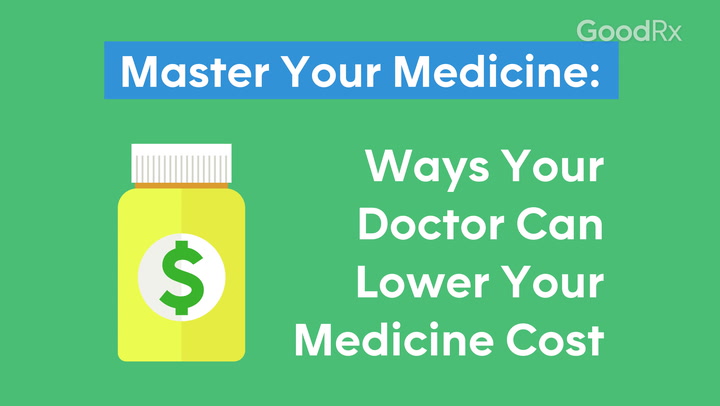
Can Doctors Self-Prescribe Medication? Here Are the Laws by State
Key takeaways:
Virtually all states prohibit self-prescribing controlled substances. But the laws vary by state when it comes to noncontrolled substances. So it’s important to check with your state board.
Even in cases where self-prescribing is legal, it might not be ethical or even the best approach. In most cases, it’s best to avoid doing it.
There are some cases, like in emergency situations, where self-prescribing can be needed.

It’s not uncommon to see doctors and other healthcare professionals writing prescriptions for themselves or family members. While self-prescribing can be appropriate, and even necessary at times, healthcare professionals need to understand the legal and ethical implications of it.
In what states is self-prescribing legal?
It’s legal in many states for healthcare professionals to prescribe noncontrolled substances for themselves or immediate family members. But most states prohibit doctors and other healthcare professionals from self-prescribing controlled substances.
In some states, the laws are more strict. In Tennessee, for example, the state medical board and board of osteopathic medicine prohibits all self-prescribing, except in emergency situations.
Instant Rx savings for insured and uninsured patients
GoodRx for HCPs has savings that can beat insurance copays and reduce your need to complete prior authorizations.

GoodRx is NOT insurance. GoodRx Health information and resources are reviewed by our editorial staff with medical and healthcare policy and pricing experience. See our editorial policy for more detail. We also provide access to services offered by GoodRx and our partners when we think these services might be useful to our visitors. We may receive compensation when a user decides to leverage these services, but making them available does not influence the medical content our editorial staff provides.
Prescribing any controlled medication for yourself is prohibited. And prescribing them for immediate family members is reserved for situations involving minor, self-limited illnesses or emergencies. That decision is based on the fact that a physician cannot have a valid patient-healthcare professional relationship with themselves.
In North Carolina, healthcare professionals are not allowed to prescribe controlled substances for themselves or family members. They are also not allowed to treat their own chronic conditions or those of family members. The law does, however, allow a doctor to self-prescribe in an emergency or urgent situation, or in the case of a minor illness that the healthcare professional has clinical competency treating.
Both Florida and Washington allow self-prescribing, but only for noncontrolled substances. In both cases, the states allow healthcare professionals to treat family members, but it’s discouraged.
The best way to find out what the law says in your state is to contact your medical board directly. You can also find the relevant legislation or administrative rulings on the board’s website. There are directories available for state medical boards, which in most cases regulate physicians and physician assistants. There are also directories for state nursing boards, which typically regulate nurse practitioners.
Finally, even if it's legal, keep in mind that Medicare doesn’t allow payment for services given to an immediate family member.
Stark Law: Learn the basic self-referral rules of the Stark Law and the penalties you need to avoid.
Prescribing pharmacists: Many pharmacists are now prescribing for minor conditions. Find out which medications pharmacists can prescribe by state.
Physician-assisted death: This practice is legal in 10 states. See if your state is included here.
When is self-prescribing unethical or detrimental to care?
While it might be legal for a healthcare professional to prescribe for themselves or family members, it does present ethical concerns. The American Medical Association (AMA) discusses the practice in their Code of Medical Ethics. Because of concerns about professional objectivity, the organization recommends limiting self-prescribing to emergency situations when no other healthcare professional or prescriber is available — or for minor, self-limiting conditions.
There are also many cases when the condition being treated is outside the prescriber’s specialty. It’s not a good idea, for example, for an orthopedist to prescribe eye drops for glaucoma. It’s better to go to an ophthalmologist, who can accurately diagnose the glaucoma and monitor treatment.
Self-prescribing may also not be a good idea when the healthcare professional can’t reasonably diagnose the condition on their own. While this is often related to the prescriber’s specialty, there are other examples. Treating a condition that requires general anesthesia to diagnose, such as with an invasive biopsy, will require another prescriber, for instance.
Pharmacists have a responsibility to determine the appropriateness of a prescription and may not dispense medication for conditions outside a healthcare professional’s specialty.
What are the benefits of self-prescribing?
While self-prescribing is not ideal in most cases, there are some times when it might be beneficial or even necessary. Most state laws allow self-prescribing in an emergency situation when another prescriber is not readily available.
Another common situation involves healthcare professionals or their family members with chronic conditions. For example, if a healthcare professional is out of refills on their medication and can’t get in touch with their regular physician, self-prescribing may be necessary to ensure no doses are missed. Self-prescribing should not, however, be a substitute for a follow-up office visit.
Many pharmacists have filled prescriptions for physicians or their family members in this situation and feel comfortable doing so, given that it’s not a regular occurrence.
How common is self-prescribing?
Overall, there’s limited information on how common self-prescribing is. A 1998 survey found that 52% of medical resident respondents reported prescribing a medication for themselves. But, in 2012, a survey found that just under 10% of medications taken among first-year medical residents were self-prescribed.
An unfortunate exception to this trend was the self-prescribing of ivermectin, hydroxychloroquine, and other treatments being studied for COVID-19 during the beginning of the pandemic. It’s unclear how many doses were self-prescribed. But the widespread practice, which earned media attention, led many state boards, like California, to issue formal statements.
In the end, many of these treatments proved to be ineffective and even carry additional risks, as in the case of ivermectin. This is a good example of how clinical judgment can become compromised with self-prescribing.
The bottom line
In a pinch, healthcare professionals might need to prescribe medication for themselves on occasion. But it’s important to not only check the state’s laws, but also be aware of both clinical and ethical concerns associated with the practice.
Why trust our experts?


References
American Academy of Physician Associates. (n.d.). List of licensing boards.
American Medical Association. (2021). AMA, APhA, ASHP statement on ending use of ivermectin to treat COVID-19.
American Nurses Association. (n.d.). APRN state law and regulation.
California State Board of Pharmacy. (2020). Statement regarding improper prescribing of medications related to treatment for novel coronavirus (COVID-19).
Center for Medicare and Medicaid Services. (2014). Medicare benefit policy manual: Chapter 16 - General exclusions from coverage.
Christie, J. D., et al. (1998). Prescription drug use and self-prescription among resident physicians. JAMA.
Code of Medical Ethics. (n.d.). Opinion 1.2.1.: Treating self or family. American Medical Association.
Guille, C., et al. (2012). Prescription drug use and self-prescription among training physicians. Archives of Internal Medicine.
North Carolina Medical Board. (2021). 2.2.3: Self-treatment and treatment of family members.
State of Washington Medical Quality Assurance Commission. (2017). Policy: Self-treatment or treatment of immediate family members.
Tennessee Board of Osteopathic Examination. (2017). Policy: Prescribing for oneself and one’s family.
Tennessee Board of Osteopathic Examination. (2022). Policy: Prescribing for oneself and one’s family.
Title XXXII: Regulation of Professions and Occupations. (2023). 458.331: Grounds for disciplinary action; action by the board and department. The Florida Legislature.

























